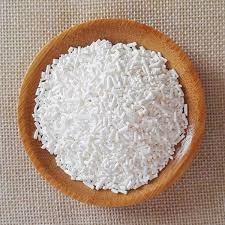
Top Fertilizer Companies to Watch in the Agriculture Industry
The Fertilizer Industry Essential Players in Global Agriculture
The fertilizer industry plays a vital role in global agriculture, providing the essential nutrients that crops need to grow and thrive. With the ever-increasing demand for food due to a rising global population, the significance of fertilizer companies has never been more pronounced. This article delves into the workings of the fertilizer industry, the key players, and the challenges they face in today's agricultural landscape.
Fertilizers are categorized into two main types organic and inorganic. Organic fertilizers are derived from natural sources, such as manure, compost, and bone meal, while inorganic fertilizers are synthetically produced and typically contain essential nutrients like nitrogen (N), phosphorus (P), and potassium (K). These three elements are often referred to as the macronutrients and are critical for plant growth. The synergy of these nutrients is what helps to enhance crop yields and ensure food security across the globe.
The fertilizer market is dominated by several key companies that have established themselves as leaders in the industry. Some of the largest fertilizer companies in the world include Nutrien Ltd., The Mosaic Company, CF Industries Holdings, and Yara International. These companies operate on a global scale, producing and distributing a wide array of fertilizers to meet the diverse needs of farmers worldwide.
One major driver behind the growth of the fertilizer industry is the increasing pressure on agricultural productivity. The United Nations estimates that the world population will reach approximately 9.7 billion by 2050. To feed this growing population, global food production must increase significantly. Fertilizers provide farmers with the means to boost crop yields, making them an indispensable component of modern agriculture.
However, the fertilizer industry is not without its challenges. Environmental concerns, such as soil degradation, water pollution, and greenhouse gas emissions, pose significant threats to the sustainability of fertilizer use. The over-application of fertilizers can lead to nutrient runoff, which contaminates water bodies, causing harmful algal blooms and disrupting aquatic ecosystems. Consequently, regulatory measures are being implemented in various countries to manage fertilizer application and mitigate its environmental impact.
fertilizer companies

Additionally, the volatility of raw material prices has a direct impact on the fertilizer market. Natural gas, a key input in the production of nitrogen-based fertilizers, has seen price fluctuations due to geopolitical tensions and market dynamics. This volatility can affect the profitability of fertilizer companies and, consequently, the prices that farmers pay for these essential products.
In response to these challenges, fertilizer companies are increasingly investing in research and development to create more efficient, environmentally friendly products. Innovations such as slow-release fertilizers, which gradually provide nutrients to plants over an extended period, help reduce the risk of nutrient runoff while enhancing crop performance. Additionally, companies are exploring alternatives to traditional fertilizers, including biofertilizers derived from natural organisms that can promote plant growth and health.
Sustainability initiatives are also becoming more prevalent within the fertilizer industry. Many companies are adopting practices aimed at reducing their carbon footprint, such as using renewable energy sources for production and implementing circular economy models. These strategies not only help mitigate environmental impact but also enhance the reputation and marketability of fertilizer products.
As the global agriculture landscape evolves, the fertilizer industry will continue to adapt to emerging trends and challenges. The integration of technology, precision farming practices, and sustainable approaches will likely shape the future of fertilizer use. Ultimately, fertilizer companies will remain crucial players in the quest for food security, helping farmers meet the growing demands of a changing world.
In conclusion, the fertilizer industry is an integral part of modern agriculture, serving as a foundation for enhancing food production and supporting the global economy. While challenges abound, the ongoing innovations and sustainability initiatives within the industry offer a promising outlook for its future. By navigating these complexities, fertilizer companies can continue to fulfill their essential role in ensuring food security and promoting environmental stewardship.
-
Water Treatment Chemicals for Industrial ProcessesNewsAug.07,2025
-
Unlocking the Secrets of Ammonium Bicarbonate in Traditional BakingNewsAug.07,2025
-
Monosodium Glutamate Seasoning for Stock EnhancementNewsAug.07,2025
-
Enhancing Dimethyl Disulfide Solubility with Green SolventsNewsAug.07,2025
-
Aspartame Safety: Current Research and RegulationsNewsAug.07,2025
-
Aluminum Hydroxide Antacid and Nutrient Absorption ImpactNewsAug.07,2025
-
1,2,3-Benzotriazole: The Unsung Hero of Industrial Chemical InnovationNewsAug.07,2025
Hebei Tenger Chemical Technology Co., Ltd. focuses on the chemical industry and is committed to the export service of chemical raw materials.
-

view more DiethanolisopropanolamineIn the ever-growing field of chemical solutions, diethanolisopropanolamine (DEIPA) stands out as a versatile and important compound. Due to its unique chemical structure and properties, DEIPA is of interest to various industries including construction, personal care, and agriculture. -

view more TriisopropanolamineTriisopropanolamine (TIPA) alkanol amine substance, is a kind of alcohol amine compound with amino and alcohol hydroxyl, and because of its molecules contains both amino and hydroxyl. -

view more Tetramethyl Thiuram DisulfideTetramethyl thiuram disulfide, also known as TMTD, is a white to light-yellow powder with a distinct sulfur-like odor. It is soluble in organic solvents such as benzene, acetone, and ethyl acetate, making it highly versatile for use in different formulations. TMTD is known for its excellent vulcanization acceleration properties, which makes it a key ingredient in the production of rubber products. Additionally, it acts as an effective fungicide and bactericide, making it valuable in agricultural applications. Its high purity and stability ensure consistent performance, making it a preferred choice for manufacturers across various industries.











